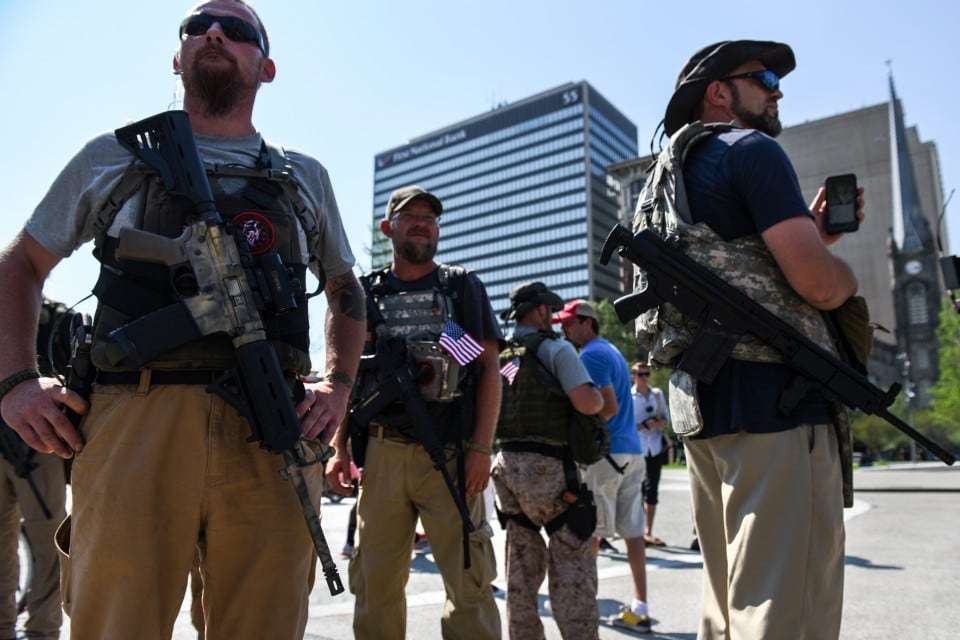The Volokh Conspiracy
Mostly law professors | Sometimes contrarian | Often libertarian | Always independent
Guns and demonstrations

As readers of the blog know, I generally support the right to possess weapons that are needed for effective self-defense, including the right to possess them in public places. But there are indeed interesting questions about whether and where this right might nonetheless be limited. Airports? Schools? Bars? Restaurants that sell alcohol but also food? These questions have come up routinely in the more than 40 states that allow pretty much all law-abiding adults to get a license to carry concealed guns (or don't even require such a license); many states, for instance, ban gun possession in bars, but some don't.
One such place is demonstrations, where historically some states have indeed limited gun possession. Prof. Mark Kleiman had a particularly interesting post on this, which I thought I'd pass along; I'm not sure what the right answers to his questions are, but I think his questions are much worth discussing. He asks them about open carry, but I would also add the same with respect to concealed carry:
A group called "White Lives Matter," carrying firearms and Confederate flags, gathered outside NAACP headquarters in Houston today. Presumably the place was closed on Sunday, so there don't seem to have been any confrontations with NAACP staff.
This raises some questions for advocates of "open carry":
- Is it appropriate to come armed to a political demonstration?
- Would it be appropriate for counter-demonstrators also to come armed?
- When two groups of armed demonstrators confront one another and start shouting and shoving, and someone opens fire, how could a jury possibly find, beyond reasonable doubt, that whoever fired first was not in reasonable fear of his life from the actions of the armed people on the other side? Texas is "stand-your-ground" as well as "open-carry," so there is no legal obligation on either side to back off.
- If the demonstration happened during business hours, would it be appropriate for NAACP staff to come armed? If one of them were to kill an armed Confederate, and testified that he saw the Confederate going for his gun and felt in reasonable fear of his life, how could a jury convict? Conversely, if one of the Confederates were to kill an armed NAACP staffer and gave the same testimony, how could a jury convict?
Or, if you like, you can flip any of these questions around and imagine a bunch of anti-Trump demonstrators coming armed to a Trump rally.


Show Comments (0)